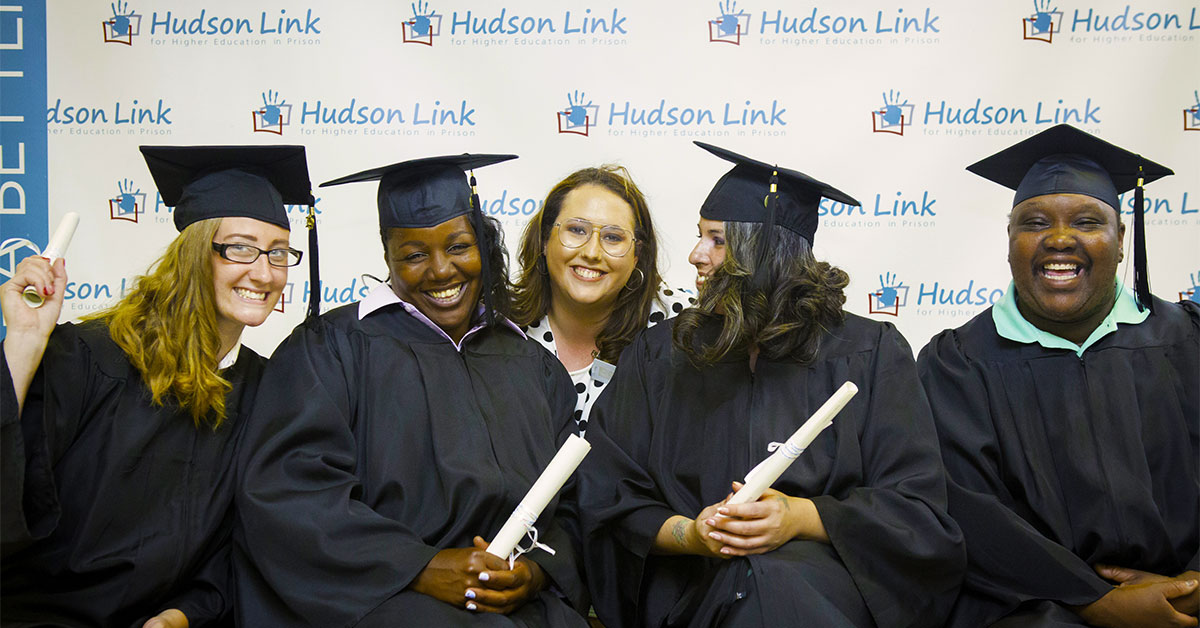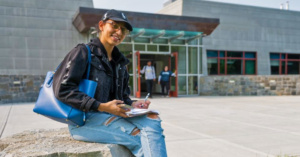One afternoon while administering a college program inside of New York’s only maximum-security prison for women, one of my top performing students, Mary, a grandmother in her late 60s, raced into my office requesting a copy of To Kill a Mockingbird. Our college library inside the prison had a copy, but Mary was enrolled in an environmental science course, an upper-level sociology elective, and algebra. When I inquired as to why she was in such a hurry to check out this book, she explained that her granddaughter was reading the book and she wanted to be able to discuss it with her on their next visit.
I’ve worked in the New York State higher education in prison community for more than seven years. College-in-prison programs improve the lives of incarcerated individuals as well as transform families and communities inside and outside of prison.
Beyond the widely cited research about lowering recidivism rates that saves taxpayers money and increases public safety, college-in-prison programs can help ensure incarcerated individuals live full and meaningful lives by providing opportunities to pursue education. Prison education programs can also have a lasting family impact, as an incarcerated individual’s decision to attend college can help disrupt cycles of incarceration and inspire other family members to pursue their own academic endeavors. In addition, these programs can prepare individuals to re-enter the workforce, launch rewarding careers, and become change agents in their community upon release instead of returning to prison.
New York has a rich and a diverse community of public and private college providers offering degree programs in over 30 of New York’s 50 state correctional facilities. Currently, SUNY is the largest provider of college-in-prison in New York State, serving over 700 students across 21 correctional facilities. We expect the number and size of college-in-prisons across New York state to grow with the recent passage of the Consolidated Appropriations Act, which restored Pell grants for incarcerated individuals, which brings a return of public funding for prison education.
It’s no secret that our prison system disproportionally impacts Black and Latinx individuals. According to the Vera Institute for Justice, in New York State, Black people constitute 15% of state residents, but 43% of people in jail and 48% of people in prison. Nationally, one in five Black people born in 2001 is likely to be incarcerated in their lifetime, compared to one in 10 Latinx people and one in 29 white people. College-in-prison programs can be an important step in expanding access and achieving equitable outcomes for those who have been disproportionally impacted by the criminal justice system and who also have traditionally been overlooked and underserved by colleges and universities.
When we read the mission of The State University of New York, we see the call to “provide to the people of New York educational services of the highest quality, with the broadest possible access, fully representative of all segments of the population.” Fully representative means all people, even those who find themselves incarcerated. SUNY’s Higher Education for the Justice-Involved program helps us fulfill our mission by supporting incarcerated individuals to earn college degrees.
In the expansion of higher education in prison across New York State, SUNY schools are continuing to create and expand college-in-prison programs, support justice-involved students on campus, create a fair and inclusive campus culture, and build local community partnerships to support justice involved students. SUNY For All truly must mean for all.
Written by Rachel Sander
Rachel is Prison Education Director at SUNY System Administration and a member of the New York State higher education in prison community for over seven years.
Photo at top courtesy Babita Patel for Hudson Link.




